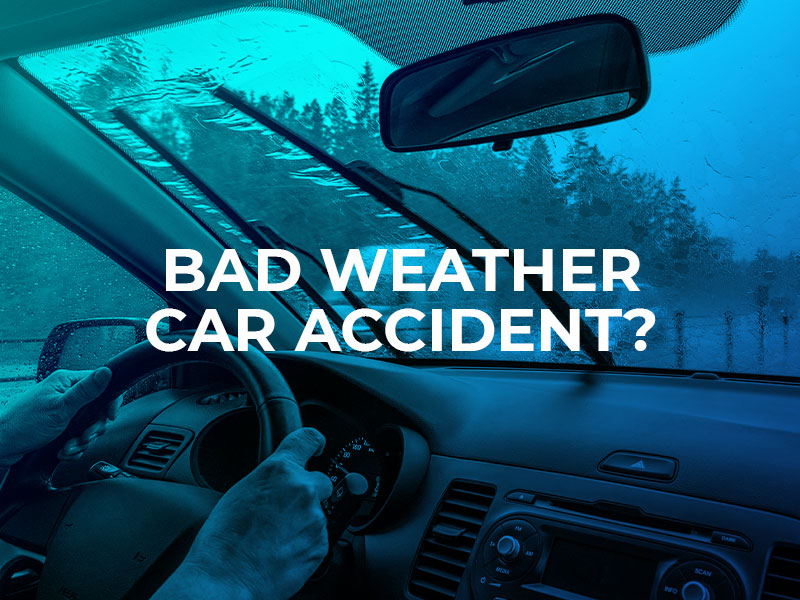How is Fault Determined In a Bad Weather Car Accident?
Car accidents happen every day in Georgia. When we turn to the Governor’s Office of Highway Safety, see that there were almost 400,000 vehicle crashes during the last full reporting year. While many of those crashes resulted in only property damage or minor injuries, during that year there were:
- 1,430 crash fatalities
- 19,405 serious crash injuries
Many people think of driver error when they think of car accidents. When you throw in bad weather, crashes become much more likely. Drivers in Georgia face a range of weather possibilities that can make driving more dangerous. This can include rain and fog. It can even include snow and ice depending on the time of year.

Who is at fault in a bad weather crash?
Drivers need to take extra precautions when driving in bad weather. You may have heard people being ticketed by police for driving too fast for conditions. You do not necessarily have to be speeding to get a ticket. When the weather is bad, even driving the speed limit may be too fast. Bad weather can slow stopping times, cause hydroplaning, and more.
Drivers have the ability to decide whether or not to operate in bad weather. They should also know what precautions to take when operating in bad weather.
Every driver on the roadway has a duty to avoid collisions with other vehicles. Maintaining an appropriate level of care appropriate for the weather conditions is part of these duties. Some factors that could lead to drivers being held liable during bad weather include:
- Driving while impaired by alcohol or drugs
- Driving with worn tread on the tires
- Not using windshield wipers or using worn windshield wipers
- Not using headlights at all or using them incorrectly (high beams when not appropriate)
- Driving while distracted by electronics or other devices
- Failing to obey traffic signals or road signs
How to determine liability in a bad weather crash
Accidents that occur in bad weather, insurance companies will do everything they can to minimize their risk. This means that you will need to prove the other driver’s fault. Your attorney will work to do this by showing:
- That the driver was operating at an unreasonable rate of speed for the conditions at the time.
- That the weather event was known and unexpected.
- That the driver did not maintain a safe distance between themselves and the other vehicle.
- That the driver could have avoided the accident.
Proving this will require your attorney to obtain all evidence related to the crash. This can include:
- Gathering video surveillance and photographic evidence.
- Speaking to eyewitnesses to the crash.
- Obtaining police reports that document skid marks, gouge marks, and more.
- Obtaining your medical records to prove that the crash caused your injuries.
There are very few bad weather crashes that were unavoidable. In most cases, one or more drivers will be at-fault for the crash. It is important that you obtain the compensation you deserve, including:
- Compensation for your medical bills related to the crash
- Lost wages and benefits if you are unable to work while you recover
- General household expenses
- Any physical therapy expenses
- Pain and suffering damages
- Loss of enjoyment of life damages
Start a claim as soon as possible because bad weather crashes add another layer of complexity to these cases.